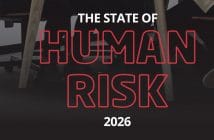
Fortinet has released its 2022 Cybersecurity Skills Gap Report. The new global report reveals that the cybersecurity skills shortage continues to have multiple challenges and repercussions for organisations including the occurrence of security breaches and subsequent loss of money. As a result, the skills gap remains a top concern for C-level executives and is increasingly becoming a board-level priority.
In Australia and New Zealand, 52 percent of organisations have experienced one to four security breaches in the last 12 months and 18 percent have experienced five or more breaches in that time. 64 percent agree that the cybersecurity skills shortage creates additional cyber risks for their organisation compared with 80 percent globally.
Given the increasing costs of breaches on organisations’ profits and reputation, cybersecurity is becoming more of a board-level priority. In Australia and New Zealand, 85 percent of organisations that have a board of directors reported that their board asks questions specifically about cybersecurity compared to 88 percent globally. 66 percent of organisations have a board of directors that has recommended increases in IT and cybersecurity headcount compared with 76 percent globally.
Advancing cybersecurity skills through training and certifications
Fortinet’s skills gap report demonstrated that training and certifications are critical ways organisations seek to further tackle the skills gap. The report revealed that 94 percent of Australian and New Zealand leaders believe technology-focused certifications positively impact their role and their team compared to 95 percent globally. 73 percent prefer to hire people with certifications compared to 81 percent of leaders globally.
Additionally, 84 per of respondents are willing to pay for an employee to achieve cyber certifications compared with 91 percent globally. One major reason certifications are highly regarded is their validation of increased cybersecurity knowledge and awareness.
81 percent of organisations have a security awareness and training program in place to ensure their employees have proper cyber hygiene compared with 87 percent globally. Almost half (43 percent) of decision-makers believe that their employees lack knowledge when it comes to cybersecurity awareness compared with 52 percent globally, which raises questions around the effectiveness of their current security awareness programs.
Jon McGettigan, regional director Australia, New Zealand, and the Pacific Islands, Fortinet, said, “The report suggests ways the skills gap can be addressed such as through training and certifications to increase employees’ education. Locally, Fortinet has seen growth in training and certifications through its NSE Certification program training courses, with the self-paced catalogues currently offered free of charge. Fortinet works with its partners to understand how the training is used and where the gaps still exist to help address those. In addition, it is currently working with 27 education institutions across Australia and New Zealand to upskill the next generation of the cybersecurity workforce.”
Sandra Wheatley, SVP marketing, threat intelligence and influencer communications, Fortinet, said, “According to the Fortinet report, the skills gap isn’t just a talent shortage challenge; it’s also severely impacting business, making it a top concern for executive leaders worldwide. Through Fortinet’s Training Advancement Agenda (TAA) and Training Institute programs, we are committed to tackling the challenges revealed in the report through various initiatives, including programs focused on cybersecurity certifications and recruiting more women into cyber. As part of this commitment, Fortinet has pledged to train one million professionals to increase cyber skills and awareness and make a dent in the skills gap by 2026.”
Addressing recruitment and retention challenges with diversity commitments
A significant challenge for organisations has been finding and retaining the right people to fill critical security roles ranging from cloud security specialists to security operations centre (SOC) analysts. The report found that 51 percent struggle to recruit cybersecurity talent and 34 percent say they struggle to retain that talent compared to 60 percent and 52 percent globally respectively.
As organisations look to build more capable and more diverse teams, 87 percent of respondents say that they have diversity goals as part of their hiring practices over the next two to three years compared with 89 percent globally.
You can read the full report here.





